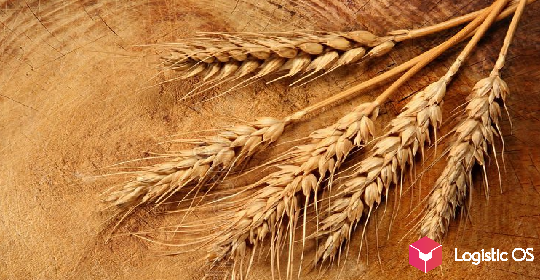The Fat and Oil Union continues to insist on increasing duties and introducing quotas.
The cleaning of the «solar culture» has just started, and the battles around it have flared up with renewed vigor.
The debate began in the winter, when the Fat and Oil Union warned that regulatory measures would be introduced in 2020.
One of such measures was proposed to increase the export duty from 6.5% to 20%.
In August, apparently, the processors decided to play it safe and offered to completely ban the export of sunflower outside the EAEU for 4 years, or continue to introduce quotas.
The reason is the record export of raw materials abroad and the holding of sales by farmers in anticipation of the best price.
According to representatives of the Fat and Oil Union, the massive export of sunflower seeds abroad actually subsidizes foreign processors, creating competition for domestic processing enterprises.
In the spring of this year, from April 12 to June 30, the ban was already introduced. At that time, the Board of the European Economic Commission explained this by the need to provide its own population with products during a pandemic.
But still, the more likely goal of all these measures, analysts consider the redistribution of income from agricultural producers to processors.
Pancakes are the most marginal product of production.
The average price for sunflower in 2019-2020 reached 28,150 rubles per ton.
For many years now, sunflower harvesting has been breaking records:
2015 — 9.3 million tons
2016 — 10.7 million tons (15% increase)
2017 — 10.5 million tons (the only year with a slight drop)
2018 — 12.8 million tons (+ 22%)
2019 — 15.3 million tons (+ 17%)
And this despite the fact that according to the «Forecast of the social and economic development of the Russian Federation for the period up to 2024», the agrarians had to reach the level of 14.4 million tons only by 2024.
The growth, of course, was associated, among other things, with an increase in acreage:
2015 — 7 million hectares
2016 — 7.6 million hectares
2018 — 8 million hectares
2019 — 8.6 million hectares.
Thus, in relation to 2015, the increase in crops was 19%.
However, this year, harvest forecasts are not so optimistic, with only 8.3 million acreage planted.
And the introduction of restrictions on the export of seeds and an increase in duties may lead to an even greater reduction, because such measures of artificial interference will slow down the desire of farmers to increase the sown area.
So far, as of August 19, 23.9 thousand tons of sunflower have been obtained with a yield of 12.2 centners per hectare. Threshed 0.2% of the area.
Analysts’ forecasts differ: from 13.8 to 15.1 million tons.

There is a strong demand for sunflower oil and raw materials in the world, which contributes to the growth of production in Russia.
High demand will also determine the high order of the price. And our farmers, of course, depend on the world market and are interested in productive cooperation.
And for the interest of farmers to turn towards processors, we need not restrictive measures, but a different approach to joint activities.
Everyone should be on an equal footing, experts say: there is a duty on the export of raw materials, but no export of oil.
The fact that raw materials need, among other things, to be supplied to domestic processors is an absolutely correct idea.
In the countries of the European Union, for example, long-term contracts are concluded between agricultural producers and processors.
They guarantee that in the event of a low yield and a rise in prices, the profit received will be divided according to agreements, therefore the manufacturer himself is interested in interacting with processors in his country.
There is no such thing in Russia yet.

